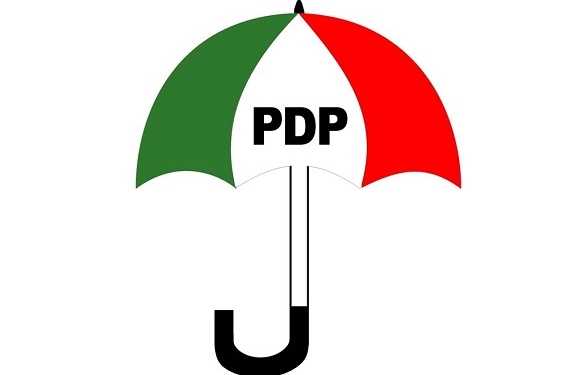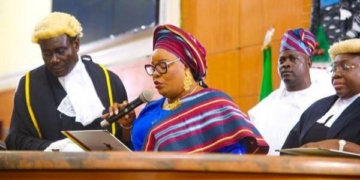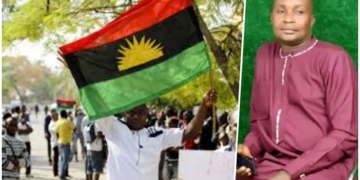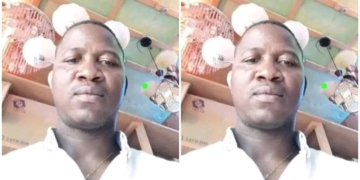The Peoples Democratic Party (PDP) shunned Independent National Electoral Commission (INEC) organised parley with political parties.
There were about sixty political parties were in attendance.
PDP and it’s presidential candidate in the 2019 poll, Alhaji Atiku Abubakar are already in Court challenging the outcome of the election.
The parley is meant to review the Conduct of the 2019 general elections.
Otunba Niyi Adebayo represented the All Progressive Congress (APC).
INEC had announced that it will commence a National dialogue on the last general elections with the aim of improving on the shortcomings identified in the last Feburary and March 2019 polls.
In his keynote address, Prof Mahmood Yakubu said with the general elections over it was necessary for the commission to review the conduct of the polls with a view of improving electoral process in the country.
Yakubu also pointed out that the meeting with political parties will afford the commission to hear directly from the political parties who are critical players in the elections.
The commission, he further said conveyed to each political parties issues to be discussed at the meeting.
He also used the opportunity to charge the political parties on the need to do internal cross-examination to see if they have been complying with extant law.
Citing an aspect of the law which directs the parties to submit two reports at the end of elections, Yakubu noted that only one political party and one presidential candidate have so far submitted reports to the commission.
Going forward, he tasked political parties on the need to develop their internal democracy .
“The Commission has promised the nation that it will undertake a major national conversation on the future of our electoral process. Having concluded our in-house reviews, today marks the beginning of our consultation with stakeholders. This is therefore an auspicious occasion to, first of all, hear from those who actually fielded candidates for 1,558 constituencies in which elections were held in 2019 and deployed agents to 119,973 polling units as well as the various levels of collation of results and declaration of winners nationwide.
“It is important to remind us that as we review the 2019 General Elections in order to identify successes, challenges and the way forward, we should also ask ourselves the extent to which we have complied with the extant laws. I wish to remind you that the Electoral Act 2010 (as amended) requires each political party to submit two election expenses reports to the Commission. First is the disclosure of material contributions received from individuals and corporate bodies three months after the announcement of the results of the General Election as provided for in Sec. 93(4) of the Electoral Act. So far, no political party is in compliance. Secondly, parties are required to submit audited returns of their election expenses within six months after an election as provided for in Sec. 92(3)[a] of the Electoral Act. Although we are still within the time frame provided by law, so far only one party has filed its returns. Similarly, the Commission notes that only one presidential candidate has submitted financial expenses report. We wish to remind leaders of political parties of their obligations under the law.
“We have already conveyed to each political party the range of issues to be discussed at this meeting.
We are also aware that many of you are familiar with previous efforts to reform the electoral process. In the last eleven years, wide ranging recommendations have been made by several committees on electoral reform, notably the Uwais Committee (2008), the Lemu Committee (2011) and most recently the Nnamani Committee (2017). The various Committees made essentially similar recommendations.
They identified the need to re-examine the extensive responsibilities of INEC, the roles and responsibilities of the security agencies during elections, the imperative of internal democracy within political parties, issues of inclusivity with particular reference to marginalised segments of our society (women, youths and persons living with disabilities), voter inducement which has now assumed a new dimension with vote-buying at polling units on election day, reform of the electoral legal framework, violence and hate speech during the electioneering process, and appropriate sanctions for violators of our electoral laws.






Discussion about this post